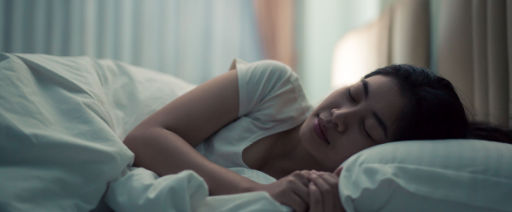Do Sleep Aids Really Work?

Sleep is a vital component of our overall health and well-being. However, in today’s fast-paced world, many people struggle to get enough quality sleep. Consequently, sleep aids have grown in popularity as people search for ways to improve their sleep quality. In this blog post, we will explore various sleep aids available in the UK and examine their effectiveness.
Natural Sleep Aids
Melatonin: Melatonin is a hormone that helps regulate our sleep-wake cycle. It is naturally produced by the pineal gland and its levels rise at night to signal our body that it’s time to sleep. Melatonin supplements are available over-the-counter and have been found to be effective in treating jet lag, delayed sleep phase disorder, and insomnia. However, it is essential to consult a doctor before using melatonin as it may interact with other medications and its long-term use requires medical supervision.
Valerian root: Valerian is a herbal remedy that has been used for centuries to treat sleep disorders and anxiety. It is believed to work by increasing the levels of a neurotransmitter called GABA in the brain, which promotes relaxation. Some studies have found valerian to be effective in improving sleep quality, but more research is needed to confirm its long-term safety and effectiveness.
Chamomile: Chamomile is a popular herbal tea that has been used as a natural sleep aid for centuries. It contains a compound called apigenin, which binds to GABA receptors in the brain, promoting relaxation and sleepiness. Drinking chamomile tea before bedtime can help improve sleep quality, especially for those with mild to moderate insomnia.
Over-the-Counter Sleep Aids
Antihistamines: Antihistamines are commonly used as over-the-counter sleep aids. They work by blocking histamine receptors in the brain, which can cause drowsiness. While antihistamines can help you fall asleep, they may not improve the overall quality of sleep and can cause side effects like dry mouth, dizziness, and daytime drowsiness. Long-term use of antihistamines is not recommended, as they can lead to dependence and decreased effectiveness over time.
Nytol: Nytol is a popular over-the-counter sleep aid that contains diphenhydramine. It can help you fall asleep faster and stay asleep longer, but like other antihistamines, it can cause side effects and lose effectiveness over time. It is best to use Nytol only occasionally and follow the recommended dosage.
Lifestyle Changes
Sometimes, simple lifestyle changes can significantly improve sleep quality without the need for sleep aids. Here are some tips for creating an optimal sleep environment and fostering healthy sleep habits:
Establishing a consistent sleep schedule by going to bed and waking up at the same time every day helps regulate your body’s internal clock, making it easier to fall asleep and wake up feeling refreshed.
Engage in relaxing activities before bedtime, such as reading, taking a warm bath, or practicing deep breathing exercises These can signal to your body that it’s time to wind down and prepare for sleep.
Limit exposure to screens before bed; the blue light emitted by smartphones, tablets, and computers can interfere with melatonin production, making it more difficult to fall asleep. Try to limit screen time at least an hour before bedtime. Alternatively, you may find the use of a yellow night mode on your screens helpful for preparing your eyes and brain for sleep.
Ensure your sleep environment is cosy and fresh. A comfortable mattress, supportive pillow, and a cool, dark, and quiet room can significantly improve sleep quality. Additionally, by keeping your sleeping space tidy, you can reduce any stress that clutter might cause you while you are trying to relax.
Limit your caffeine and alcohol intake. Both caffeine and alcohol can interfere with your sleep cycle and reduce the overall quality of your sleep. Avoid consuming these substances, particularly in the evening.
Regular physical activity can help improve sleep quality, reduce stress, and decrease the risk of developing sleep disorders. Aim for at least 150 minutes of moderate-intensity exercise per week, but avoid exercising too close to bedtime, as it may make it harder to fall asleep.
Sleep aids can be effective in improving sleep quality, but their effectiveness varies depending on the individual and the underlying cause of the sleep problem. Natural sleep aids like melatonin, valerian root, and chamomile may be beneficial for some people, while others may find them ineffective when compared to over-the-counter or prescription medications.
It is essential to remember that sleep aids should not be used as a long-term solution and should be combined with healthy sleep habits and lifestyle changes to achieve the best results. Always consult a healthcare professional before starting any new sleep aid to ensure it is appropriate for your specific needs and to minimize potential risks and side effects.
Shop now
Regardless of what sleep aids you might choose to use, we know that having a comfortable bed is always going to make you feel more comfortable! Shop now and browse our high-quality, affordable products!
Add a comment

